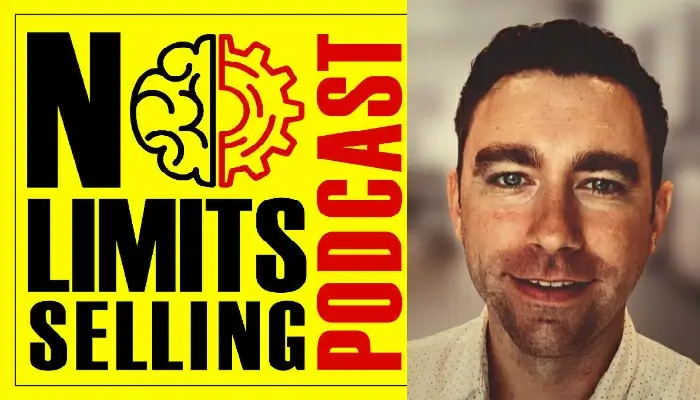The Role of Optimism by Chris Mechanic
Chris Mechanic is the CEO and Co-Founder at @WebMechanix. Chris was recently selected as a finalist by Ernst & Young for their Entrepreneur of the Year award. Chris and his partner (Arsham Mirshah) started WebMechanix in the basement of the family home in 2009. They have grown Webmechanix into a prominent digital agency in the Mid-Atlantic region. This podcast is about the role of optimism.
Podcast Highlights:
- Add a zero to your price. People will pay more than you think.
- Serve people instead of selling to them.
- Making guarantees, When you take a risk the rewards are huge
- Focus on what distinguishes you from others.
- Speaking the same language, use the same metrics for sales to the marketing.
- Focus. Limit the number of initiatives that you take on to one or two at a time.

Contact Chris:
[EDITOR’S NOTE: This podcast is sponsored by No Limits Selling. It is a fun, fast-paced podcast that delivers hard-fought business advice that you can implement today to improve your sales and performance]
Interested In Our Real Estate Coaching Services? Explore Our Website: Link
Feeling Not Well Today? You Can Use Our Mindset Boosters App To amp Up Your Mood: Link
Find us on Social Media:
LinkedIn | Facebook community | Instagram
Like what do you listen to? Subscribe to our podcast!
Ready to become fearless? We can help you become fearless in 60 days so you accomplish more in your career Schedule A 15 min Call with Umar
Summary
Introduction
The podcast begins with an introduction of Chris Mechanics, the CEO and Co-Founder of WebMechanix. Chris shares his background, explaining how he started his career in the tech industry and eventually co-founded WebMechanix, a company that specializes in web development and digital marketing.
Chris's Journey and the Birth of WebMechanix
Chris talks about his journey in the tech industry, starting from his early days as a software developer. He discusses the challenges he faced and how he overcame them. He also shares the story of how WebMechanix was born out of a desire to provide high-quality web development and digital marketing services. Chris explains that the company's mission is to help businesses grow by leveraging the power of the internet.
WebMechanix' Services and Strategies
In this section, Chris delves into the services offered by WebMechanix. He explains that the company provides a wide range of services, including web development, SEO, content marketing, and social media management. Chris also discusses the strategies that WebMechanix uses to help its clients succeed online. He emphasizes the importance of understanding the client's business and target audience in order to create effective digital marketing strategies.
Success Stories and Client Testimonials
Chris shares several success stories and client testimonials that demonstrate the effectiveness of WebMechanix' services. He talks about how the company has helped various businesses improve their online presence and achieve their digital marketing goals. Chris also highlights the strong relationships that WebMechanix builds with its clients, which he believes is a key factor in the company's success.
Future Plans for WebMechanix
Towards the end of the podcast, Chris discusses the future plans for WebMechanix. He talks about the company's goals for expansion and its plans to introduce new services. Chris also shares his vision for the future of the digital marketing industry and how WebMechanix plans to stay ahead of the curve.
Conclusion
The podcast concludes with Chris expressing his gratitude for the opportunity to share his story and the story of WebMechanix. He encourages listeners to reach out to WebMechanix if they need help with their digital marketing efforts. Chris also offers some final words of advice for aspiring entrepreneurs in the tech industry.
Questions & Answers
Who is Chris Mechanics, the CEO and Co-Founder of WebMechanix?
What is the story behind the creation of WebMechanix?
What services does WebMechanix offer?
Can you share some success stories of WebMechanix?
What are the future plans for WebMechanix?
What advice does Chris Mechanics have for aspiring tech entrepreneurs?
Don’t miss this opportunity to transform your real estate career with one-on-one coaching. As an experienced real estate coach, I, Umar Hameed, am dedicated to helping you unlock your full potential and achieve your real estate goals. To learn more about who am I and my clients ↓
If you’re ready to take the next step, book an appointment with me today and begin your journey toward success in the real estate industry.
